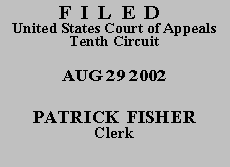

| BEVERLY L. PRENTICE,
Plaintiff - Appellant, v. THE UNIVERSITY OF TULSA, an Oklahoma non-profit institutional organization, Defendant - Appellee. |
|
Beverly Prentice appeals from summary judgment granted in favor of the University of Tulsa on her discrimination and hostile work environment claims brought pursuant to Title VII of the Civil Rights Act of 1964, 42 U.S.C. §§ 2000e through 2000e17, and on her claims alleging violation of the Equal Pay Act, 29 U.S.C. § 206(d); and from the dismissal for want of jurisdiction of her state-law claims for breach of contract and detrimental reliance. Our jurisdiction arises under 28 U.S.C. § 1291, and we affirm.
The facts of this case are well documented in the district court's order filed September 19, 2001, and we need not repeat them here. Ms. Prentice claims that the following allegations were sufficient to raise a genuine issue of material fact whether she was subjected to sexual discrimination and a sexually or gender-based hostile work environment in violation of Title VII: (1) her supervisor told her she may need to "sleep" with the Director of Personnel in order to get additional staff for her department; (2) the University investigated her department after she demanded a meeting with the Director of Personnel to complain about staff shortages, and her meeting with him was cancelled, following the statement that she would have to sleep with the Personnel Director; (3) derogatory statements falsely attributed to her were reported to the President of the University, resulting in her dismissal from a voluntary committee on which she served; and (4) her supervisor made threats implying that she or her family could be harmed after she informed him she intended to file a grievance with the University complaining about Personnel Services and its handling of staff matters. "We review the district court's grant of summary judgment de novo, applying the same legal standard as the district court." Bullington v. United Air Lines, Inc., 186 F.3d 1301, 1313 (10th Cir. 1999). Summary judgment is appropriate if the pleadings, affidavits, and other evidence "show that there is no genuine issue as to any material fact and that the moving party is entitled to a judgment as a matter of law." Fed. R. Civ. P. 56(c). "In applying this standard, we view the factual record and inferences therefrom in the light most favorable to the nonmoving party. . . . Summary judgment is appropriate if the evidence is such that no reasonable jury could return a verdict for the nonmoving party." Bullington, 186 F.3d at 1313 (citation omitted).
Despite Ms. Prentice's arguments on appeal, we agree with the district court that, although she may have presented evidence sufficient to support state-law claims, Ms. Prentice did not present evidence sufficient to raise genuine issues of material fact regarding sexual discrimination or a gender-based hostile work environment. See Stahl v. Sun Microsystems, Inc., 19 F.3d 533, 537-38 (10th Cir. 1994) (noting that hostile work environment harassment arises when sexual conduct unreasonably interferes with work performance or creates an intimidating or offensive working environment and must be pervasive); Lowe v. Angelo's Italian Foods, Inc., 87 F.3d 1170, 1175 (10th Cir. 1996) (holding that isolated sexual comments "do not demonstrate that the work environment . . . was permeated with discriminatory intimidation, ridicule, and insult," and that evidence must show that hostility is related to gender) (quotation omitted).
We also agree with the district court that Ms. Prentice failed to satisfy her prima facie burden to demonstrate that the University violated the Equal Pay Act because she presented no evidence comparing her wages with a male in a comparable position. See Sprague v. Thorn Ams., Inc., 129 F.3d 1355, 1364
(10th Cir. 1997) (holding that plaintiff complaining of Equal Pay Act violations must show "(1) she was performing work which was substantially equal to that of the male employees considering the skills, duties, supervision, effort, and responsibilities of the jobs; (2) the conditions where the work was performed were basically the same; (3) the male employees were paid more under such circumstances.") (quotation omitted).
Ms. Prentice has waived her assertion that the district court erred in concluding that her state-law claims were outside the court's jurisdiction by failing to brief that issue on appeal.
The judgment of the United States District Court for the Northern District of Oklahoma is AFFIRMED.
Entered for the Court
Senior Circuit Judge
*. This order and judgment is not binding precedent, except under the doctrines of law of the case, res judicata, and collateral estoppel. The court generally disfavors the citation of orders and judgments; nevertheless, an order and judgment may be cited under the terms and conditions of 10th Cir. R. 36.3.